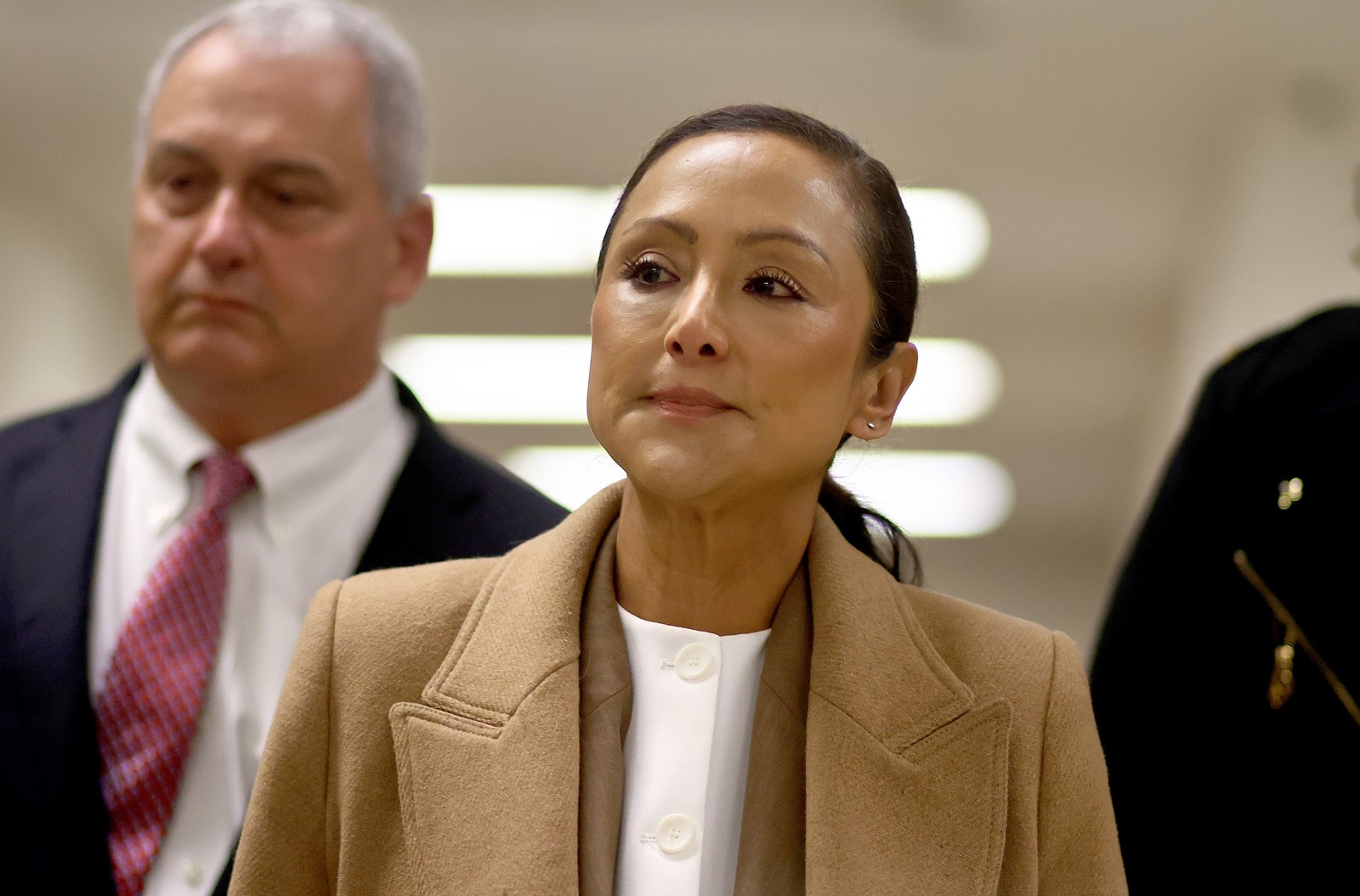
The First Amendment Coalition is urging the San Mateo County Board of Supervisors to reject Sheriff Christina Corpus’ request to close her August removal hearing to the public.
The nonprofit group argues that barring the public and media from the proceedings would violate the First Amendment right of access to judicial and quasi-judicial hearings. In a letter to the board, the group warned that approving a closed hearing could expose the county to legal action and financial liability.
“Barring the press and public from the Removal Hearing as Sheriff Corpus has requested would violate the First Amendment right of access to public proceedings, undermine a panoply of compelling public interests in administering the Removal Hearing transparently, and needlessly shut San Mateo citizens out of a key phase of a process they voted to begin in Measure A,” the coalition wrote.
The hearing is scheduled for Aug. 18-29. It follows the board’s June vote to remove Corpus from office — an authority granted to the board by voters in a March special election. The decision was based on findings from a closed-door preremoval hearing conducted by Chief Probation Officer John Keene, who served as the hearing officer.
Corpus has requested the upcoming hearing also be closed, according to a document posted by the San Mateo County Superior Court. A county spokesperson previously told this news organization the county was “evaluating the request” but has not yet made a determination or provided a timeline for a decision.
County spokesperson Effie Milionis Verducci told this news organization the county supports an open process.
“While we intend to formally respond to the First Amendment Coalition’s letter next week, the county has consistently expressed its view that this should be a fully transparent process — including an open August appeal hearing on the sheriff’s removal,” Verducci said. “However, the sheriff has blocked it. The county continues to believe that, as an elected official, she should allow the evidence and facts to be presented publicly to the people served by the Sheriff’s Office.”
On whether the process should be open, Corpus’ lawyer Thomas Mazzucco said, “Sheriff Corpus and the defense team are carefully considering all of our options.”
In filings submitted June 27, Corpus’ legal team argued the hearing should be closed “to avoid public dissemination of materials exempt from disclosure.” They cited provisions under the Peace Officers Bill of Rights, which shields certain records involving officers under investigation.
However, the First Amendment Coalition said those protections do not apply in this case, as the records at issue belong to the county, not individual peace officers.
“(Citing the Peace Officers Bill of Rights) does not justify closing the removal hearing,” the First Amendment Coalition said, arguing that state law requires proceedings to remove an elected official be open to the public, similar to a court trial.
It also noted that Corpus is an elected official and that therefore privacy protections should not apply.
“Neither statute cited by Sheriff Corpus can override the First Amendment right of access that precludes blanket sealing or closure, especially given the total absence of evidence demonstrating a need for either,” the group added.
An earlier preremoval hearing was also held behind closed doors at Corpus’ request. Her attorneys had previously challenged the removal process in court, arguing that the board’s actions are unconstitutional, but a judge denied their request for a temporary restraining order.
Documents from the preremoval hearing were made public after Corpus’ legal team failed to ask the court to seal the filing related to the request for a temporary restraining order, according to the county.
As a result, the court released materials that included details about the closed-door proceedings.
“In this country, it is a first principle that the people have the right to know what is done in their courts,” the First Amendment Coalition stated.
“We hope that, especially given the county’s and Sheriff Corpus’ stated interest in moving forward as transparently as possible, litigation will not be necessary.”


 PREVIOUS ARTICLE
PREVIOUS ARTICLE
